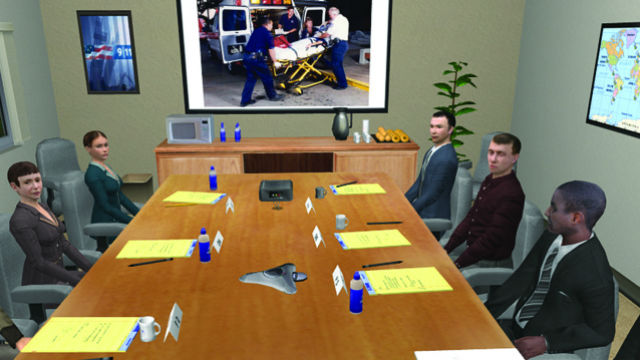Failure is not an option. It’s a necessity.
Playing it safe is no longer a career option for most Americans, if it ever was. And that’s good news, in one sense: the downside of job security is that it dulls your appetite for risk, and your ability to learn from failure.

Sign up for the Smarter Faster newsletter
A weekly newsletter featuring the biggest ideas from the smartest people
To punish failure is yet another way to encourage mediocrity. –Michael Eisner
Playing it safe is no longer a career option for most Americans, if it ever was. And that’s good news, in one sense: the downside of job security is that it dulls your appetite for risk, and your ability to learn from failure.
What’s the Big Idea?
Type success into the search box at Amazon and you get 125,000+ book results. Titles include: The Success System that Never Fails, Mastery of Self for Wealth Power Success (commas, anyone?), The Law of Success, and The Secret Code of Success. These titles sell success as a unified state of being – a kind of earthly Nirvana – that, once attained, can never be lost.
But the biographies and explicit testimony of some undeniably successful* people paint a very different picture. Ask actor Edward Norton, Virgin CEO Richard Branson, Energy Guru T. Boone Pickens, or former Disney CEO Michael Eisner about success and they’ll tell you it goes hand in hand with grave risk, and sometimes with episodic failure.
A recent, large-scale study by William Sahlman, an advisor at several large venture capital firms and a Harvard Business School professor of Entrepreneurial Management, reveals that the failure rate of professional venture firms over the past 15 years has been around 60%, up from 35% in the 1980s. In other words, more high-potential ventures fail than succeed. The good news, says Sahlman, is that the economy and culture of the United States encourage entrepreneurial risk-taking. Failure doesn’t mean “Game over.” It means “Try again, with experience.”
What’s the Significance?
Our first 350 years or so of national development were defined by the pioneering (read entrepreneurial) spirit of explorers, inventors, bold leaders of one stripe or another. There were many cataclysmic failures along their roads to success. After the struggles of the Industrial Revolution and the Great Depression, the post-World War II boom ushered in a period of relative stability in the United States, which lasted for about half a century.
Now, the ground is once again shifting under our feet. Economic uncertainty and the globalization of industry have made short work of traditional career pathways – the large, stable corporation, the 9 to 5 job, the reliable pension waiting (along with the gold watch) at the end of several decades of tireless service. Recent grads find themselves entering a job market driven by small, fast-moving companies that reward employees who can think on their feet.
These volatile times call for a heroic mindset, one that recognizes risk and takes bold action anyway. One that embraces failure, learns from mistakes, and starts over again. It’s not about being fearless – it’s about welcoming risk and committing to big ideas, because that’s how the plot of an individual life – or the life of a nation – advances.
Our first 350 years or so of national development were defined by the pioneering (read entrepreneurial) spirit of explorers, inventors, bold leaders of one stripe or another. There were many cataclysmic failures along their roads to success. After the struggles of the Industrial Revolution and the Great Depression, the post-World War II boom ushered in a period of relative stability in the United States, which lasted for about half a century.
Now, the ground is once again shifting under our feet. Economic uncertainty and the globalization of industry have made short work of traditional career pathways – the large, stable corporation, the 9 to 5 job, the reliable pension waiting (along with the gold watch) at the end of several decades of tireless service. Recent grads find themselves entering a job market driven by small, fast-moving companies that reward employees who can think on their feet.
These volatile times call for a heroic mindset, one that recognizes risk and takes bold action anyway. One that embraces failure, learns from mistakes, and starts over again. It’s not about being fearless – it’s about welcoming risk and committing to big ideas, because that’s how the plot of an individual life – or the life of a nation – advances.
WEIGH IN!: What wisdom have you gained from personal or professional disasters, fiascos, and washouts?
––––––––––––––––––––––––––––––––––––––––––––––––––––––––––––––––––––––––
*For the sake of discussion, let’s assume that we’re defining ‘success’ in more or less material terms: an impressive, long-term, overall upwardly mobile run in some industry or other, characterized by innovation and accompanied by fame, respect, or notoriety.
Sign up for the Smarter Faster newsletter
A weekly newsletter featuring the biggest ideas from the smartest people





